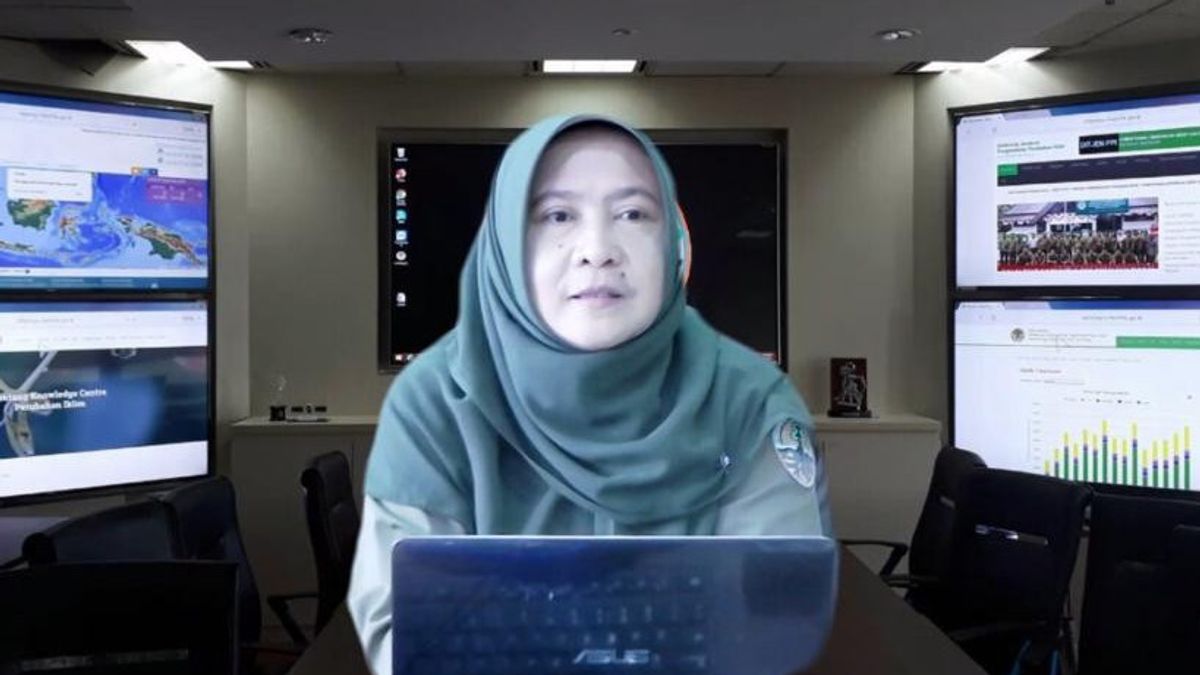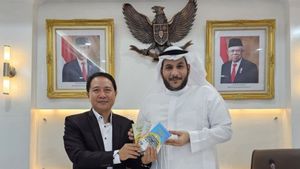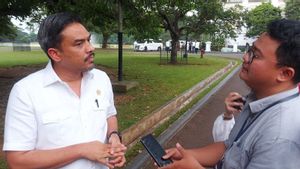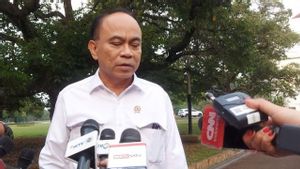JAKARTA - The series of UNFCCC COP26 Climate Conference Meetings have ended. The closing Plenary Session of COP26/CMA.3/CMP.16 will be held on Saturday, November 13, 2021, one day later than planned. Various decisions related to the elements of the Paris Agreement have been made.
"The results of COP 26 Glasgow have increased trust and modalities for a more tangible implementation of various elements of the Paris Agreement," said Director General of Climate Change Control at the Ministry of Environment and Forestry and Head of the Indonesian Delegation at COP 26, Laksmi Dwanthi, last week quoted from PPID of the Ministry of Environment and Forestry. .
But Laksmi regrets that there are some things that should not happen in a negotiation forum between countries. For example, as stated by many delegates that not the entire decision-making process is carried out in an open and inclusive manner.
Including the condition that many parties cannot get what they should get in the context of negotiations.
Substantial notes that are quite crucial and become quite hot discussions are related to the completion of article 6, the agenda to keep 1.5 degree temperature alive, especially the abolition/reduction of the use of coal and fossil fuel subsidies, as well as efforts to produce a balanced text. between the obligation to increase ambitions and targets (mitigation) by state parties and the obligation to fulfill funding commitments by developed countries to developing countries.
"Article 6 of the Paris Agreement has finally been adopted. With the adoption of this agenda, the Paris Rules Book is nearing completion, so that the implementation of the commitments of the Parties under the Paris Agreement can be carried out completely and effectively," said Laksmi.
One of the important elements in this agenda is the rules of the game regarding cooperation between countries and between business actors with national authorization as part of efforts to fulfill its NDC commitments. This collaboration can be carried out through a market approach with unit transfers, or a non-market approach without unit transfers.
In addition, after going through intense negotiations until the end of COP26, finally the Glasgow Climate Pact (The Glasgow Pact), which is called the first climate agreement that explicitly plans to reduce coal, which is called the worst fossil fuel for greenhouse gases, is not completely can be agreed upon by all parties.
In the end the parties agreed to phase out rather than phase out coal. Although some parties expressed their disappointment, the agreement at least reflected the different national conditions.
"The Glasgow Pact calls for more ambitious emission reductions, and promises developing countries more money to help them adapt to climate impacts. But many countries are underlining that pledges do not go far enough to limit temperature rises. up to 1.5 degrees Celsius," explained Laksmi.
In relation to the Enhanced Transparency Framework (ETF), methodological issues related to ETFs for action and support referred to Article 13 of the Paris Agreement have been adopted.
For this reason, Indonesia emphasizes that the Parties need to be encouraged to immediately make the necessary preparations to ensure timely reporting of Bienniun Transparency (BTR) under the ETF in accordance with Article 13 of the Paris Agreement and the time limit set using the agreed outline.
"In addition, support for the implementation of ETFs based on Article 13 of the Paris Agreement needs to be provided in a timely, adequate and predictable manner, considering that ETFs are to build trust," said Laksmi.
Although the outcome of COP26 Glasgow is not as perfect as expected, but the most important thing is that all state parties have agreed that all have an obligation to translate the results of the COP26 negotiations into implementation and concrete actions of the Paris Agreement. Otherwise, the commitments made in Paris will not reach the target.
Indonesia invites all parties to promise to jointly take action based on the principles of the Convention, as well as the Paris Agreement.
"Indonesia is ready to move forward through the next process under the UNFCCC. As stated by the President of the Republic of Indonesia if climate change is a big threat to global prosperity and development. Solidarity, partnership, cooperation, global collaboration are the keys," concluded Laksmi.
The English, Chinese, Japanese, Arabic, and French versions are automatically generated by the AI. So there may still be inaccuracies in translating, please always see Indonesian as our main language. (system supported by DigitalSiber.id)













